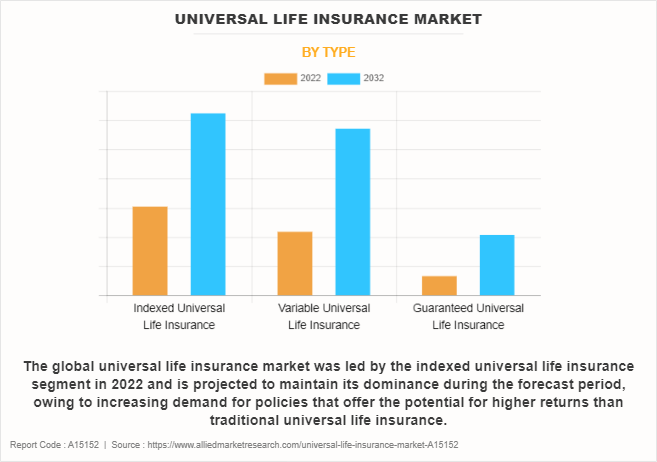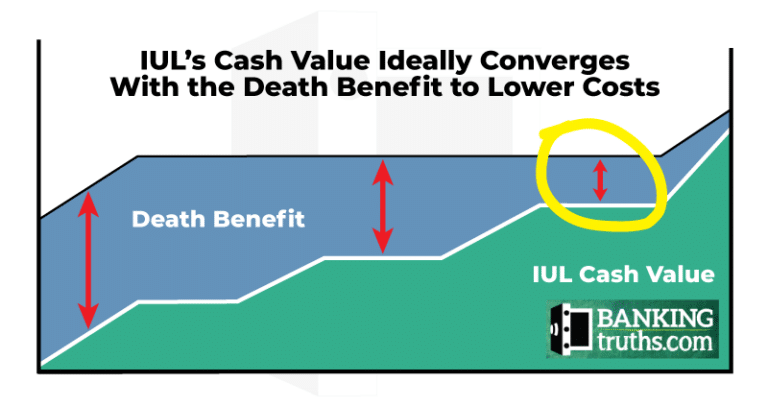All Categories
Featured
Table of Contents

[/image][=video]
[/video]
You can underpay or avoid premiums, plus you might have the ability to adjust your fatality benefit. What makes IUL various is the way the cash money worth is invested. When you take out an indexed universal life insurance plan, the insurance provider gives several choices to pick a minimum of one index to utilize for all or component of the cash worth account sector of your plan and your death benefit.
Adaptable costs, and a death advantage that might additionally be adaptable. Cash money worth, in addition to potential growth of that value through an equity index account. An option to allocate component of the cash money worth to a set rate of interest choice. Minimum rates of interest assurances ("floorings"), but there might also be a cap on gains, usually around 8%-12%. Built up cash worth can be utilized to lower or potentially cover costs without deducting from your survivor benefit.
Iul Com
Insurance policy holders can decide the percent allocated to the repaired and indexed accounts. The value of the selected index is taped at the start of the month and contrasted with the worth at the end of the month. If the index raises during the month, passion is contributed to the cash money value.
The 6% is multiplied by the cash money value. The resulting passion is contributed to the cash money value. Some plans determine the index gains as the amount of the changes through, while various other policies take an average of the daily gains for a month. No rate of interest is credited to the money account if the index decreases rather of up.
Iscte Iul Mit Portugal
The rate is established by the insurance company and can be anywhere from 25% to more than 100%. (The insurance provider can also alter the participate price over the lifetime of the policy.) As an example, if the gain is 6%, the engagement price is 50%, and the current money value total amount is $10,000, $300 is added to the money worth (6% x 50% x $10,000 = $300).
There are a variety of benefits and drawbacks to take into consideration before acquiring an IUL policy.: Similar to basic universal life insurance coverage, the policyholder can increase their premiums or lower them in times of hardship.: Quantities credited to the cash money value expand tax-deferred. The cash value can pay the insurance policy costs, permitting the insurance policy holder to lower or quit making out-of-pocket premium payments.
Several IUL plans have a later maturation day than various other sorts of global life policies, with some finishing when the insured reaches age 121 or more. If the insured is still alive during that time, plans pay the fatality advantage (however not typically the cash value) and the profits may be taxed.
What Is Indexed Universal Life Insurance (Iul)?
: Smaller sized plan face values don't use much benefit over normal UL insurance policy policies.: If the index goes down, no rate of interest is attributed to the cash worth.

With IUL, the objective is to benefit from higher activities in the index.: Because the insurer just gets options in an index, you're not straight purchased supplies, so you don't benefit when firms pay dividends to shareholders.: Insurers fee costs for managing your money, which can drain cash value.
For the majority of people, no, IUL isn't far better than a 401(k) in terms of saving for retired life. The majority of IULs are best for high-net-worth people looking for ways to decrease their gross income or those that have maxed out their various other retirement alternatives. For everyone else, a 401(k) is a far better financial investment lorry because it doesn't carry the high charges and costs of an IUL, plus there is no cap on the amount you may gain (unlike with an IUL plan).
While you may not shed any money in the account if the index goes down, you will not make rate of interest. The high cost of costs and fees makes IULs costly and substantially much less budget-friendly than term life.
Indexed global life (IUL) insurance uses money worth plus a survivor benefit. The cash in the cash value account can make passion with tracking an equity index, and with some often assigned to a fixed-rate account. Indexed global life policies cap how much cash you can collect (typically at less than 100%) and they are based on a potentially unpredictable equity index.
Best Equity Indexed Universal Life Insurance

A 401(k) is a far better alternative for that purpose since it does not carry the high fees and premiums of an IUL policy, plus there is no cap on the amount you may earn when spent. Many IUL plans are best for high-net-worth individuals seeking to lower their gross income. Investopedia does not give tax, financial investment, or economic services and suggestions.
Your existing browser could restrict that experience. You may be making use of an old internet browser that's in need of support, or settings within your internet browser that are not suitable with our site.
Currently making use of an updated browser and still having trouble? Please give us a call at for more assistance. Your current web browser: Finding ...
The Truth About Indexed Universal Life Insurance
When your picked index gains worth, so too does your plan's money value. Your IUL money value will likewise have a minimum interest rate that it will certainly always earn, no matter market efficiency. Your IUL may also have a rates of interest cap. An IUL plan operates similarly as a typical universal life plan, with the exception of just how its money value makes rate of interest.
Fixed Index Universal Life Insurance Policy
If you're thinking about getting an indexed universal life policy, initial talk with an economic consultant who can explain the subtleties and give you an exact image of the real possibility of an IUL plan. Make certain you comprehend just how the insurer will determine your rates of interest, revenues cap, and fees that may be analyzed.

Component of your costs covers the plan cost, while the rest goes into the cash value account, which can grow based upon market performance. While IULs may appear appealing, they generally come with high costs and inflexible terms and are entirely inappropriate for numerous capitalists. They can generate rate of interest however also have the potential to shed cash.
Right here are some elements that you should take into consideration when identifying whether a IUL policy was appropriate for you:: IULs are intricate monetary items. Ensure your broker totally clarified exactly how they work, including the expenses, investment threats, and cost frameworks. There are more affordable alternatives readily available if a death advantage is being looked for by a capitalist.
Index Universal Life Insurance Uk
These can considerably decrease your returns. If your Broker fell short to supply a thorough explanation of the expenses for the policy this can be a warning. Understand abandonment fees if you make a decision to terminate the plan early.: The investment part of a IUL goes through market fluctuations and have a cap on returns (meaning that the insurance provider receives the benefit of excellent market performance and the financier's gains are covered).
: Ensure you were outlined and have the ability to pay adequate premiums to maintain the plan effective. Underfunding can result in plan lapses and loss of coverage. If your Broker fails to discuss that premium settlements are necessary, this could be a warning. It is essential to completely research study and comprehend the terms, charges, and possible risks of an IUL plan.
Typical growth financial investments can commonly be coupled with much cheaper insurance coverage choices if a death benefit is vital to a financier. IULs are exempt from government policy under the Dodd-Frank Act, meaning they are not looked after by the U.S. Securities and Exchange Commission (SEC) like stocks and options. Insurance agents marketing IULs are just required to be licensed by the state, not to undertake the same rigorous training as financiers.
Latest Posts
What Is Indexed Universal Life Insurance (Iul)?
Max Funded Indexed Universal Life Insurance
Books On Indexed Universal Life